*Editor’s note: For many artists, the idea of approaching retail buyers can seem intimidating. We’ve tapped Emilie Shapiro, jewelry designer, instructor and author of the new book, How to Create Your Own Jewelry Line, to share some ideas that budding entrepreneurs can use to attract retail buyers to their brand.
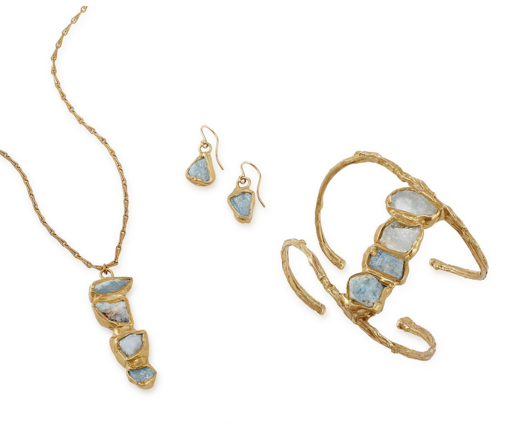
Aquamarine Ebb & Flow Jewelry by Emilie Shapiro
1. Design a Marketable Collection
Whether you are starting from scratch or have created hundreds of pieces, making a collection is very different from designing just one piece. Designing a collection is about translating one design into many different forms. For example, when creating a jewelry collection, you should be able to translate a design for a ring into a necklace, earrings and a bracelet. Every customer will gravitate toward a certain type of piece. Some customers love rings and that is all they buy while other customers want pieces that go together. Retail buyers for a wholesale account will typically want to present the full collection so there is something for everyone.
Your Action Item: Practice taking one of your designs and translating it into a collection.
Practice taking a shape, gemstone, or texture and design a collection with high, medium, and low-priced pieces in all forms of jewelry. The high, or reach pieces, will draw customers in. These are real showstoppers — your statement necklace or cuff, for instance. The medium pieces will be the core items in your collection. The low pieces, or upsell items, are easy add-ons that sell quickly, like simple earrings or pendants. This exercise will make you a better designer.

2. Conduct Store Research
When approaching a store to carry your line, always do your research in advance. Buyers are very busy, so you make sure to research the store to see if your line could be a good fit.
Your Action Item: Create a wish list of stores that you would like to submit your designs to.
Start by checking out local stores. See what products they carry and if your aesthetic and price point complement their existing assortment. Research other designers you think your work would sit well next to. Who do they sell to? What other designers are carried at those stores?
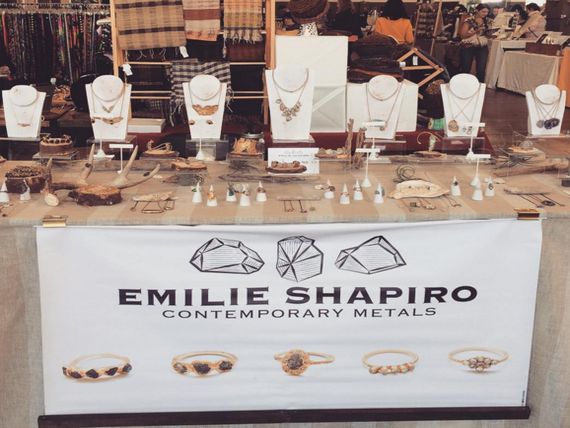
3. Follow the Buying Schedule
Understanding the buying schedule of the retail industry is key to wholesale success. Many retail buyers focus the bulk of their buying ahead of the spring/summer season and the fall/holiday season.
Your Action Item: Establish a design schedule around seasonal markets.
Establish a design schedule at the beginning of the year and stick to it. At first, aim to create two collections a year — one for spring/summer and one for fall/holiday. Reach out to buyers at the beginning of the buying season, otherwise many stores will have used up their whole budget for the season or already met their quota in the category your work fits into. Even if you’re not exhibiting at a wholesale trade show, you should still follow the schedule since that is when most stores buy. Reach out to buyers that you genuinely think would be interested in your work in-person (e.g. at a trade show or market), via email or phone.
Below is an example of a typical buyer’s schedule. You can use this as a resource for creating your design schedule:
- January – February: Purchasing for spring and summer
- May – June: Purchasing for summer and fall
- August – September: Purchasing for fall and holiday
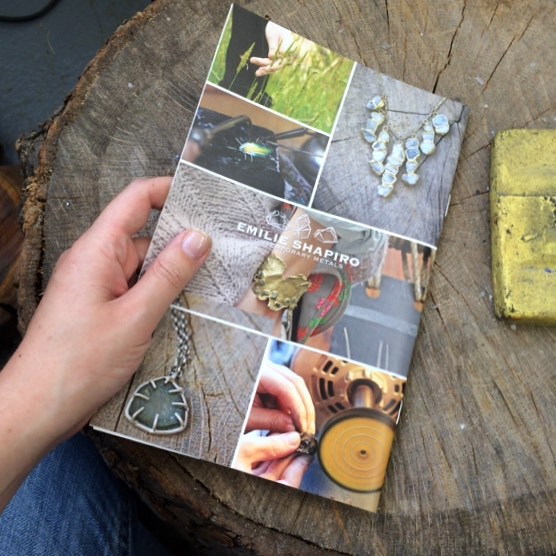
How to Create Your Own Jewelry Line by Emilie Shapiro
4. Create Line Sheets
Line sheets are your catalog of products that you make. Don’t bother making something fancy with a lot of bells and whistles. I find that clean and clear line sheets are super effective and to the point.
Your Action Item: Create a line sheet for your business.
Make sure to include a photo of each product (typically on a white background), product name, materials and wholesale price. Have a policy page with information on how to order, production lead time, minimum to order, and some information about you and your company. Include your contact info on every page. You can save your line sheets as a small PDF, so you can email it to buyers without it bouncing back, or you can print them out on your home computer or a local print shop to handout or mail.
5. Establish a Social Presence
Social media is an extremely effective way to market your pieces for free and build brand awareness. You can tell a visual story of your brand by posting images of work in progress, inspiration pictures, and finished pieces. This is a great way to invite customers into your world and make them fall in love with your brand.
Your Action Item: Identify one social network to focus your marketing efforts on.
If you are new to social media, pick one network to focus on and connect the other channels so they automatically share, or push out updates. I put my energy into Instagram. I find Instagram easy to navigate from my smartphone and aim to post one picture a day of work in progress, finished products and inspiration photos. When I post photos, they are connected to my Twitter, Tumblr, and Facebook accounts. This helps create a visual story of my brand and allows customers to easily see the handmade process and behind the scenes of my business. When on social networks like Instagram or Twitter, be sure to use hashtags. Hashtags categorize your posts and allow anyone to see them and other posts with the same tag when someone clicks on the keyword. Establish a hashtag for your brand, like #EmilieShapiroJewelry, and encourage customers to share photos wearing your jewelry. See what hashtags other designers in your category and people with similar interests are using to help widen your following.
*Emilie’s ideas reflect her experience in the jewelry industry, but her tips can be translated to apply to all artists and crafts people. If you’re interested in expert advice for launching your own jewelry business then join Emilie along with our Jewelry Buyer Sharon Hitchcock on April.5 at Emilie’s book launch event for a panel discussion on the ins-and-outs of the jewelry industry.
Think you’re ready to start selling wholesale? We always welcome new product submissions. Submit your work to us at www.uncommongoods.com/designs for consideration by our merchandising team.

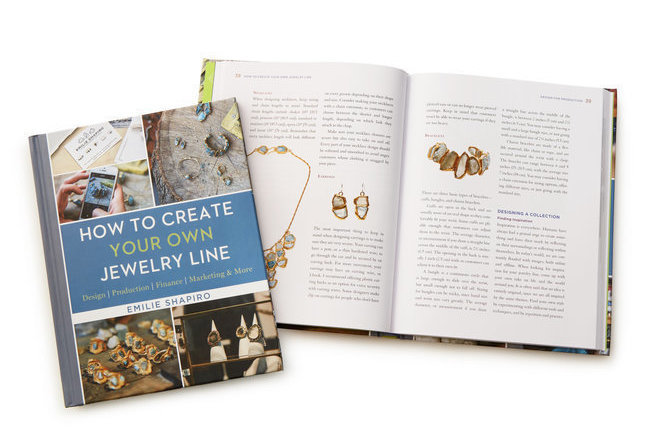
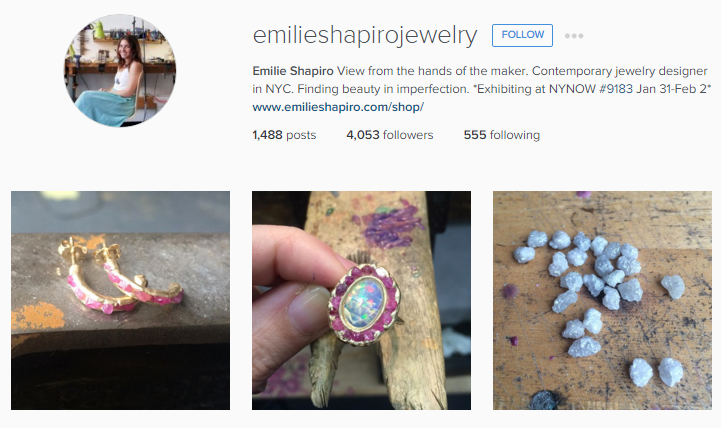
No Comments